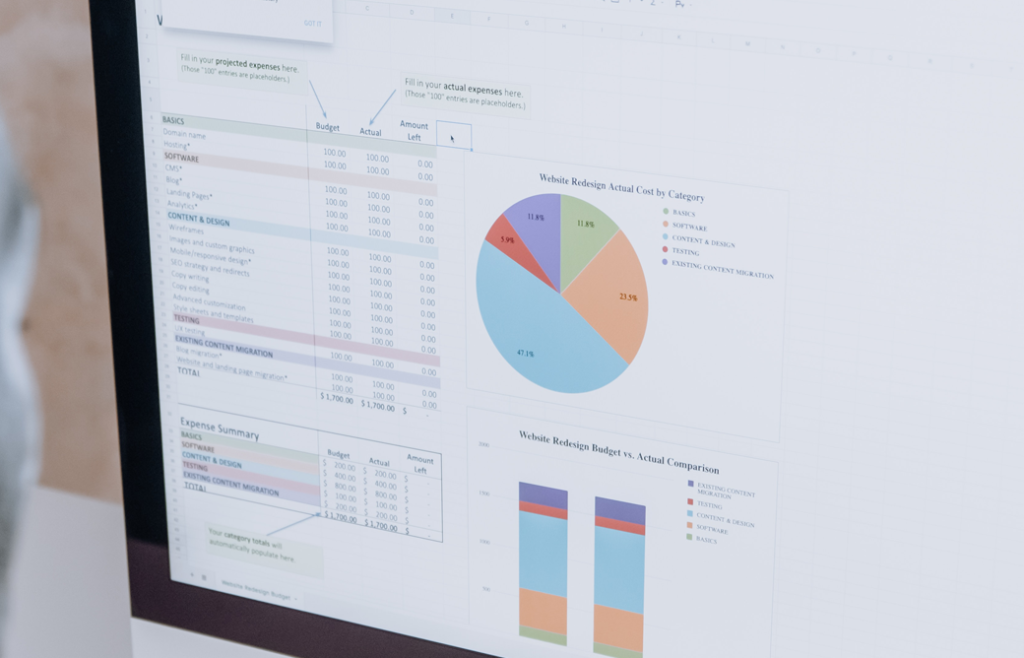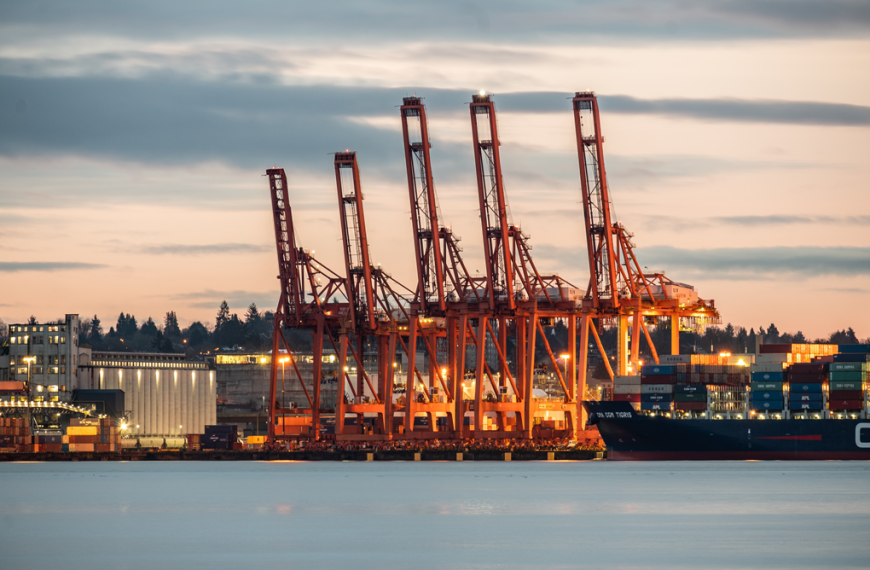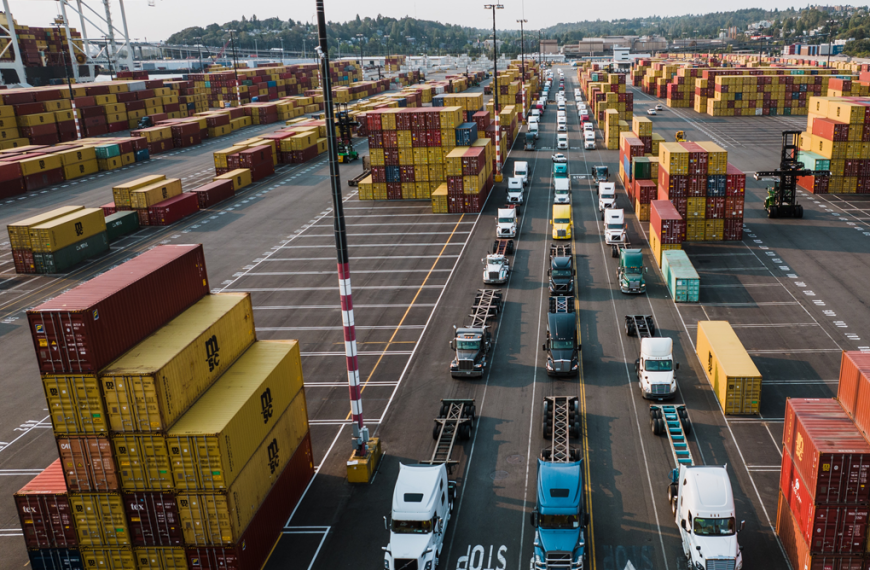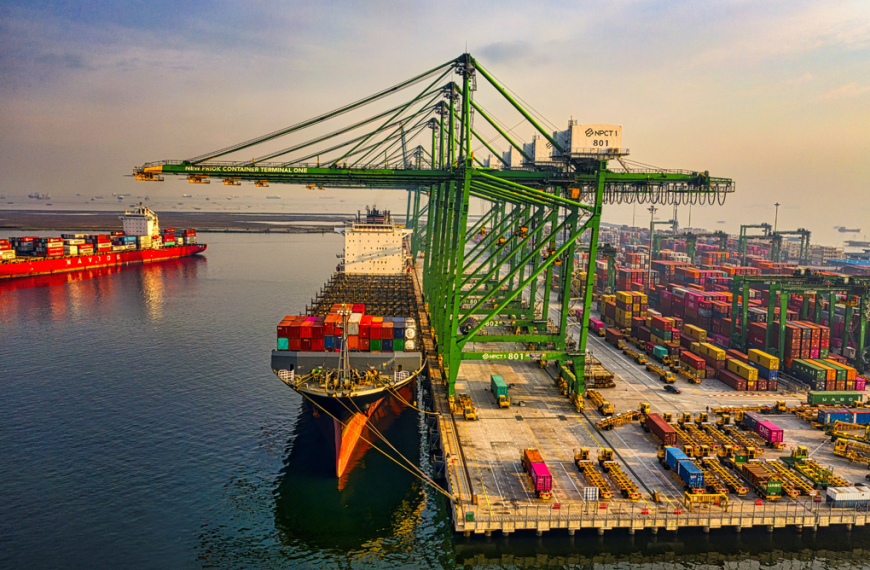Learn about the different types of company logistics, including freight brokerage firms, third-party logistics companies, and asset-based logistics providers.
When it comes to the world of commerce, logistics is a crucial aspect that can make or break a business. Efficient and effective logistics management can be the difference between profitability and losses. In this article, we will take a closer look at what logistics companies do and the different types of logistics companies out there.
- What is a Logistics Company?
- Different Types of Logistics Companies
- 1. Freight Brokerage Firms
- What is a Freight Brokerage Firm?
- How Do Freight Brokerage Firms Work?
- Benefits of Working with Freight Brokerage Firms
- 1. Access to a Network of Carriers
- 2. Expertise and Knowledge of the Industry
- 3. Flexibility and Scalability
- How to Choose the Right Freight Brokerage Firm
- 2. Third-Party Logistics Companies (3PL)
- What is a Third-Party Logistics Company (3PL)?
- What Services Do 3PLs Offer?
- Benefits of Working with a 3PL
- Choosing the Right 3PL
- Conclusion
- 3. Asset-Based Logistics Companies
- What is an Asset-Based Logistics Company?
- Benefits of Working with an Asset-Based Logistics Company
- Factors to Consider When Choosing an Asset-Based Logistics Company
- Conclusion
- 4. Integrated Logistics Providers (ILP)
- What Does a Logistics Company Do?
- What Does 3PL Mean?
- The Difference between a 3PL Company and a Freight Brokerage Firm
- What is a Freight Broker?
- Why Shippers Need a Healthy Mix of Brokerage and 3PL Services
- Frequently Asked Questions (FAQs)

What is a Logistics Company?
A logistics company is an organization that specializes in managing the transportation, storage, and distribution of goods. Logistics companies are responsible for ensuring that products are delivered to their intended destination in a timely and cost-effective manner.
Different Types of Logistics Companies
There are several types of logistics companies, each specializing in different areas of logistics management. Some of the most common types of logistics companies include:
1. Freight Brokerage Firms
Freight brokerage firms act as intermediaries between shippers and carriers. They help shippers find carriers to transport their goods and negotiate rates on their behalf. Freight brokerage firms typically do not handle the physical transportation of goods.
In the world of logistics, freight brokerage firms play a vital role as intermediaries between shippers and carriers. They help businesses find carriers to transport their goods and negotiate rates on their behalf. In this article, we will take a closer look at what freight brokerage firms do and how they can benefit shippers.
What is a Freight Brokerage Firm?
A freight brokerage firm is a third-party logistics provider that acts as an intermediary between shippers and carriers. Freight brokers help shippers find carriers to transport their goods and negotiate rates on their behalf. They typically do not own the assets required to provide logistics services themselves, but instead rely on a network of carriers and warehouses to fulfill their clients’ logistics needs.
How Do Freight Brokerage Firms Work?
Freight brokerage firms work by connecting shippers with carriers. They have relationships with a network of carriers, and they use their expertise and knowledge of the industry to negotiate favorable rates and terms for their clients. Freight brokers typically earn their revenue by taking a commission on the transportation costs.

Benefits of Working with Freight Brokerage Firms
Working with a freight brokerage firm can provide several benefits for shippers, including:
1. Access to a Network of Carriers
Freight brokerage firms have established relationships with a network of carriers, which means that they can help shippers find the best carrier for their specific needs. They can also negotiate favorable rates on behalf of their clients, which can help shippers save money on transportation costs.
2. Expertise and Knowledge of the Industry
Freight brokerage firms have a deep understanding of the logistics industry and can provide valuable insights and guidance to shippers. They can help shippers navigate the complex world of transportation and logistics and ensure that their goods are transported safely and efficiently.
3. Flexibility and Scalability
Working with a freight brokerage firm provides shippers with flexibility and scalability. They can help shippers manage their logistics needs, whether they are shipping a single shipment or have ongoing transportation requirements.
How to Choose the Right Freight Brokerage Firm
Choosing the right freight brokerage firm is essential for shippers. Here are some factors to consider when selecting a freight broker:
1. Reputation and Experience
Look for a freight brokerage firm with a strong reputation and a proven track record of success. Choose a company that has experience in your specific industry and can provide references from other clients.
2. Technology and Tools
Look for a freight brokerage firm that uses advanced technology and tools to manage logistics. They should have an easy-to-use online platform that provides real-time visibility into shipments and allows for easy tracking and management of logistics.
3. Service Offerings
Choose a freight brokerage firm that offers a wide range of services, including transportation, warehousing, and order fulfillment. This can help ensure that all of your logistics needs are met in one place.
Conclusion
Freight brokerage firms play a critical role in the logistics industry. They help shippers find carriers to transport their goods and negotiate rates on their behalf. Working with a freight brokerage firm can provide shippers with access to a network of carriers, expertise and knowledge of the industry, and flexibility and scalability. When selecting a freight brokerage firm, consider factors such as reputation and experience, technology and tools, and service offerings.
2. Third-Party Logistics Companies (3PL)
Third-party logistics companies provide a range of logistics services to shippers. They can handle everything from transportation and warehousing to order fulfillment and inventory management. 3PL companies can also provide custom logistics solutions tailored to a client’s specific needs.
In today’s global economy, businesses are constantly searching for ways to optimize their supply chain management and reduce costs. One solution that has emerged in recent years is the use of third-party logistics companies, also known as 3PLs. In this article, we will take a closer look at what 3PLs are, the services they offer, and the benefits they provide to businesses.
What is a Third-Party Logistics Company (3PL)?
A third-party logistics company, or 3PL, is a company that provides logistics services to other companies. These services can include transportation, warehousing, inventory management, order fulfillment, and more. 3PLs are typically non-asset-based, meaning they do not own the transportation or warehousing assets they use to provide their services. Instead, they work with a network of carriers and warehouses to fulfill their clients’ logistics needs.
What Services Do 3PLs Offer?
3PLs offer a wide range of logistics services to businesses, including:
1. Transportation Services
3PLs can provide transportation services for businesses, including truckload, less-than-truckload (LTL), air freight, and ocean freight. They have established relationships with carriers, which allows them to negotiate favorable rates and terms on behalf of their clients.
2. Warehousing and Distribution Services
3PLs can provide warehousing and distribution services for businesses, including inventory management, order fulfillment, and cross-docking. They have warehouses and distribution centers located strategically around the country, which allows them to store and distribute goods efficiently.
3. Freight Forwarding Services
3PLs can provide freight forwarding services for businesses, including customs clearance, documentation, and insurance. They have expertise in international shipping and can help businesses navigate the complexities of global trade.

Benefits of Working with a 3PL
Working with a 3PL can provide several benefits for businesses, including:
1. Cost Savings
3PLs can help businesses save money by negotiating favorable rates and terms with carriers and warehousing providers. They can also provide economies of scale by pooling the logistics needs of multiple clients together.
2. Expertise and Knowledge of the Industry
3PLs have a deep understanding of the logistics industry and can provide valuable insights and guidance to businesses. They can help businesses navigate the complex world of transportation and logistics and ensure that their goods are transported safely and efficiently.
3. Flexibility and Scalability
Working with a 3PL provides businesses with flexibility and scalability. They can help businesses manage their logistics needs, whether they are shipping a single shipment or have ongoing transportation requirements. 3PLs can also provide customized solutions to meet the unique needs of each client.
Choosing the Right 3PL
Choosing the right 3PL is essential for businesses. Here are some factors to consider when selecting a 3PL:
1. Reputation and Experience
Look for a 3PL with a strong reputation and a proven track record of success. Choose a company that has experience in your specific industry and can provide references from other clients.
2. Technology and Tools
Look for a 3PL that uses advanced technology and tools to manage logistics. They should have an easy-to-use online platform that provides real-time visibility into shipments and allows for easy tracking and management of logistics.
3. Service Offerings
Choose a 3PL that offers a wide range of services, including transportation, warehousing, and order fulfillment. This can help ensure that all of your logistics needs are met in one place.
Conclusion
3PLs provide valuable logistics services to businesses, including transportation, warehousing, and freight forwarding.
3. Asset-Based Logistics Companies
Asset-based logistics companies own and operate their own transportation and warehouse facilities. These companies have control over their own resources and can provide a high level of service to their clients.
Asset-based logistics companies are a type of logistics provider that owns and operates their own transportation and warehousing assets, such as trucks, trailers, and warehouses. In this article, we’ll explore what asset-based logistics companies are, the benefits of working with them, and some of the factors to consider when choosing one.

What is an Asset-Based Logistics Company?
An asset-based logistics company is a logistics provider that owns and operates their own transportation and warehousing assets. This means that they have control over the entire logistics process, from the pickup of goods to the delivery to the final destination. They can provide a wide range of logistics services, including transportation, warehousing, and distribution.
Benefits of Working with an Asset-Based Logistics Company
There are several benefits to working with an asset-based logistics company, including:
1. Control and Accountability
Working with an asset-based logistics company provides businesses with greater control and accountability over their logistics operations. Since the logistics provider owns and operates their own assets, they are responsible for the entire logistics process, from start to finish.
2. Reduced Risk of Delay or Damage
Asset-based logistics companies have greater control over the logistics process, which means that they can reduce the risk of delay or damage to goods. They can ensure that goods are transported safely and efficiently, and they can provide real-time visibility into the status of shipments.
3. Greater Flexibility and Customization
Asset-based logistics companies can provide greater flexibility and customization to businesses. Since they own and operate their own assets, they can provide customized logistics solutions to meet the unique needs of each client.
Factors to Consider When Choosing an Asset-Based Logistics Company
When choosing an asset-based logistics company, there are several factors to consider, including:
1. Reputation and Experience
Look for an asset-based logistics company with a strong reputation and a proven track record of success. Choose a company that has experience in your specific industry and can provide references from other clients.
2. Service Offerings
Choose an asset-based logistics company that offers a wide range of logistics services, including transportation, warehousing, and distribution. This can help ensure that all of your logistics needs are met in one place.
3. Technology and Tools
Look for an asset-based logistics company that uses advanced technology and tools to manage logistics. They should have an easy-to-use online platform that provides real-time visibility into shipments and allows for easy tracking and management of logistics.
Conclusion
Asset-based logistics companies are a valuable logistics provider that can provide businesses with greater control and accountability over their logistics operations. When choosing an asset-based logistics company, it’s important to consider factors such as reputation, service offerings, and technology and tools. With the right asset-based logistics provider, businesses can streamline their logistics operations and reduce costs while ensuring that their goods are transported safely and efficiently.
4. Integrated Logistics Providers (ILP)
Integrated logistics providers offer end-to-end logistics services, including transportation, warehousing, order fulfillment, and inventory management. ILP companies have a high level of integration between different aspects of logistics management.
Integrated Logistics Providers (ILP) are logistics companies that offer a wide range of logistics services, including transportation, warehousing, and distribution, all under one roof. In this article, we’ll explore what ILPs are, the benefits of working with them, and some of the factors to consider when choosing one.
What is an Integrated Logistics Provider?
An Integrated Logistics Provider (ILP) is a logistics company that offers a comprehensive range of logistics services. This includes everything from transportation to warehousing, distribution, customs clearance, and more. ILPs work to integrate all aspects of the supply chain, allowing for greater efficiency, cost savings, and flexibility.

Benefits of Working with an Integrated Logistics Provider
There are several benefits to working with an Integrated Logistics Provider, including:
1. Streamlined Logistics Operations
Working with an ILP can help streamline logistics operations, as all logistics services are provided under one roof. This can help reduce the number of logistics providers businesses need to work with, resulting in greater efficiency and cost savings.
2. Customized Logistics Solutions
ILPs can provide customized logistics solutions to meet the unique needs of each client. They can help optimize logistics operations to reduce costs, improve delivery times, and enhance overall logistics performance.
3. Greater Visibility and Control
Integrated Logistics Providers offer greater visibility and control over the entire logistics process. With real-time tracking and monitoring, businesses can gain greater insight into the status of their shipments, allowing for more informed decision-making and proactive problem-solving.
Factors to Consider When Choosing an Integrated Logistics Provider
When choosing an Integrated Logistics Provider, there are several factors to consider, including:
1. Experience and Reputation
Choose an ILP with a strong reputation and a proven track record of success. Look for a company with experience in your specific industry and the ability to provide references from other clients.
2. Service Offerings
Make sure the ILP you choose offers all of the logistics services you need, including transportation, warehousing, and distribution, as well as any specialized services your business may require.
3. Technology and Tools
Look for an ILP that uses advanced technology and tools to manage logistics. They should have an easy-to-use online platform that provides real-time visibility into shipments and allows for easy tracking and management of logistics.
Conclusion
Integrated Logistics Providers (ILPs) are valuable logistics companies that can help streamline logistics operations and provide customized logistics solutions to meet the unique needs of each client. When choosing an ILP, it’s important to consider factors such as experience, service offerings, and technology and tools. With the right ILP, businesses can optimize their logistics operations, reduce costs, and enhance overall logistics performance.
What Does a Logistics Company Do?
Logistics companies provide a range of services to help businesses manage their logistics needs. Some of the most common services provided by logistics companies include:
- Transportation management
- Warehousing and distribution
- Order fulfillment
- Inventory management
- Customs brokerage
- Freight forwarding
- Supply chain consulting
| Logistics Service | Brief Description |
|---|---|
| Transportation | Movement of goods from one place to another using different modes of transportation |
| Warehousing | Storage of goods in a facility with inventory management and order fulfillment services |
| Inventory Management | Tracking and managing inventory levels to optimize stock availability and reduce costs |
| Distribution | Coordination and management of the movement of goods to their final destination |
| Freight Forwarding | Organizing and managing international shipments, including customs clearance and documentation |
| Supply Chain Management | Coordination and optimization of all logistics activities from sourcing to delivery, including inventory management, transportation, and warehousing |
| 3PL Services | Outsourced logistics services provided by third-party logistics companies, including transportation, warehousing, and inventory management |
What Does 3PL Mean?
3PL stands for third-party logistics. A 3PL company provides logistics services to businesses, but does not own the assets required to provide those services. Instead, they rely on a network of carriers and warehouses to fulfill their clients’ logistics needs.
In today’s fast-paced business environment, companies need to focus on their core competencies and outsource non-core activities to remain competitive. One area where this outsourcing trend is most visible is logistics, which includes transportation, warehousing, and inventory management. This is where third-party logistics companies (3PLs) come into play.
What is a 3PL?
A 3PL is a logistics company that provides outsourced logistics services to businesses. They specialize in optimizing and managing supply chain operations to help businesses streamline their logistics processes, reduce costs, and improve efficiency.
Types of 3PLs
There are different types of 3PLs, including:
- Transportation-based 3PLs: These 3PLs specialize in transportation management, including shipping and freight forwarding. They help businesses optimize transportation routes and modes to reduce costs and improve delivery times.
- Warehouse-based 3PLs: These 3PLs provide warehousing and inventory management services, including storage, picking, packing, and shipping. They help businesses manage inventory levels, reduce warehouse costs, and improve order fulfillment.
- Integrated 3PLs: These 3PLs offer a full range of logistics services, including transportation, warehousing, and inventory management. They provide end-to-end supply chain solutions to help businesses optimize their logistics operations.
Benefits of Using a 3PL
There are several benefits to using a 3PL, including:
- Cost savings: 3PLs can help businesses reduce logistics costs by optimizing transportation routes, managing inventory levels, and reducing warehouse costs.
- Scalability: 3PLs can help businesses scale their logistics operations up or down as needed, without the need for major investments in infrastructure or personnel.
- Expertise: 3PLs have specialized logistics expertise and experience that businesses may not have in-house. They can provide valuable advice and guidance on logistics strategy and operations.
- Flexibility: 3PLs can offer flexible logistics solutions that can be customized to meet the specific needs of businesses.
| Benefit of Using a 3PL | Brief Description |
|---|---|
| Cost Savings | A 3PL can leverage its scale to negotiate better rates with carriers and reduce transportation, warehousing, and labor costs. |
| Expertise and Resources | A 3PL has the experience, technology, and infrastructure to handle logistics more efficiently and effectively than most companies. |
| Flexibility and Scalability | A 3PL can adjust its services to meet changing demand, seasonal fluctuations, and business growth without significant investments. |
| Focus on Core Competencies | Outsourcing logistics to a 3PL allows a company to focus on its core business functions, such as product development, marketing, and sales. |
| Risk Mitigation | A 3PL can help mitigate supply chain risks by providing redundancy, disaster recovery, and compliance with regulations and standards. |
Choosing the Right 3PL
When choosing a 3PL, businesses should consider several factors, including:
- Experience: Look for a 3PL with experience in your industry and with the specific logistics services you need.
- Technology: Look for a 3PL that uses advanced logistics technology, such as real-time tracking and inventory management systems.
- Flexibility: Look for a 3PL that can offer flexible logistics solutions that can be customized to meet your specific needs.
- References: Ask for references and check reviews from other businesses that have used the 3PL’s services.
| Choosing the Right 3PL | Brief Description |
|---|---|
| Industry Experience | A 3PL with expertise in your industry understands the specific challenges and regulations and can provide tailored solutions. |
| Technology and Infrastructure | A 3PL with modern technology and robust infrastructure can optimize logistics operations, improve visibility, and enhance efficiency. |
| Service Offerings | A 3PL with a wide range of service offerings can provide a comprehensive solution for logistics needs, such as transportation, warehousing, and supply chain management. |
| Communication and Collaboration | A 3PL that values communication and collaboration can provide transparency, build trust, and foster a partnership that benefits both parties. |
| Cost and Value | A 3PL that offers competitive pricing and delivers value beyond the cost can help a company achieve cost savings, improve operations, and grow the business. |
In conclusion, 3PLs can help businesses streamline their supply chain operations, reduce costs, and improve efficiency. By choosing the right 3PL partner, businesses can focus on their core competencies while leaving logistics to the experts.
The Difference between a 3PL Company and a Freight Brokerage Firm
While both 3PL companies and freight brokerage firms provide logistics services, there are some key differences between the two. A 3PL company typically provides a wider range of services than a freight brokerage firm, including warehousing, order fulfillment, and inventory management. In contrast, freight brokerage firms primarily focus on finding carriers to transport goods.
What is a Freight Broker?
A freight broker is a middleman between shippers and carriers. Freight brokers help shippers find carriers to transport their goods and negotiate rates on their behalf. However, freight brokers do not own the assets required to provide logistics services themselves.
Why Shippers Need a Healthy Mix of Brokerage and 3PL Services
Shippers can benefit from working with both freight brokerage firms and 3PL companies. Freight brokerage firms can help shippers find carriers to transport their goods at competitive rates, while 3PL companies can provide a wide range of logistics services to help shippers manage their supply chains more effectively.
Frequently Asked Questions (FAQs)
What does a logistics company do?
A logistics company provides various services to manage the movement and storage of goods from the point of origin to the point of consumption. These services include transportation, warehousing, inventory management, distribution, freight forwarding, and supply chain management.
What are the types of logistics in Africa?
There are several types of logistics in Africa, including road transport logistics, sea transport logistics, air transport logistics, rail transport logistics, and intermodal transport logistics. Each type of logistics has its unique challenges, and logistics companies must adapt their services to suit each mode of transportation.
Who is the biggest logistic company?
The biggest logistics company in the world is DHL, with a revenue of over $86 billion in 2020. DHL operates in over 220 countries and territories, providing a range of logistics services, including transportation, warehousing, and supply chain management.
What are the five major components of logistics?
The five major components of logistics are transportation, warehousing, inventory management, information flow, and sourcing and procurement. Each component is essential in managing the flow of goods from the point of origin to the point of consumption and ensuring that the supply chain operates efficiently and effectively.













